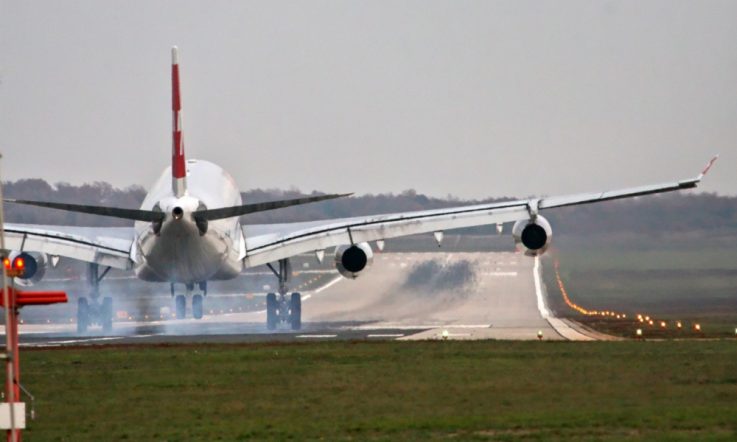How would you decide on the ‘best' hospital to receive non-emergency treatment? For this year's International Mathematical Modeling Challenge (IMMC), teams of students from across the globe worked collaboratively to produce an original mathematical model to solve this question.
From the 75 reports submitted by Australian teams, two are through to the international round. The successful teams at Radford College in Canberra and Baulkham Hills High School in New South Wales were both awarded the Meritorious Achievement award – the highest award category achieved by Australian teams in 2018 – and will now go on to be judged against 54 team reports submitted globally.
A team of four Year 12 Specialist Mathematics students were the first team to submit a report for the IMMC from Radford College. Their team advisor, Kym Palfreman, says the school's involvement was initiated entirely by the students.
‘It was actually the students that started the ball rolling, not me,' she tells Teacher. ‘They looked at past years' entries. There was a lot of stuff you could look at on the website, so they knew exactly how it needed to be presented.'
To complete their report for submission, students are able to elect five days to work on the project within a specified 17-day window. The team from Radford College worked during two school days while being excused from classes, one school day where they worked on the challenge outside of class time and also dedicated a weekend to the task.
Radford College gives students the opportunity to work on real-world problems in class, but Palfreman says it's on a much smaller scale than what is expected in the IMMC.
‘It's a big thing, five days straight. I don't think they slept much … [they had to] catch up on other stuff that they'd missed in other subjects, and even that, they'd missed a lot in their class Maths. I mean it was worth it, because what they did was amazing.'
The team through to the international round at Baulkham Hills High School also consisted of Year 12 students, but students from across the school also expressed interest in the challenge.
‘Given the enthusiasm of the core team, I saw the opportunity for them to inspire other students from Years 8 to 12 by running a series of meet ups with problem solving and mathematical modelling as the focus,' team advisor Elizabeth Sree Kumar tells Teacher.
‘It's given the students a pathway to extend their Mathematics and some have a new perspective of Mathematics … the experience the students have gained from the competition is not something that is easily achievable in the classroom. The competition gave them an opportunity to delve into a wide-ranging problem with uncertainty, only to find on the last day a correlation and an overwhelming feeling of success.
‘There are not many students I have come across who have that thirst for knowledge and [are] comfortable to learn unguided. I will consider it again in hopes to encourage more students to learn for the love of learning.'
IMMC in Australia is coordinated by the Australian Council for Educational Research (ACER). Ross Turner, Project Director for IMMC at ACER, says this year's challenge has seen a huge increase in interest. ‘Programs like IMMC are leading the way in helping students to see how mathematics can be applied to solve real-world problems,' he says.
‘What is especially pleasing is that many schools have seen that IMMC is an opportunity to engage students from different year levels in a challenging but accessible mathematical activity.'
The other national finalists are:
- Lyneham High School Canberra: Year 9 students Ananya Ravi, Khubaib Qureshi, Celine Choi and Emily Brown, with team advisor Rajesh Prasad
- Marist College Canberra: Year 10 students Tommy Lu and Akshat Jain, with team advisor Tony Zhang
- Northern Beaches Secondary College, Manly Campus, Sydney: Year 11 students Elden Loomes, Jay Mendham, Celina Diep and Katie Ringdahl, with team advisor Kate Munro
- Brisbane Boys College, Brisbane: Year 11 students James English, Xavier Catford, Ometh Rajapakse and Ethan Waugh, with team advisor Chicri Maksoud
- Ballarat Grammar School: Years 10 and 11 students Thomas Burnett, Annabella Lewis, Amy Zuell and Luke Williams, with team advisor Branden Olver
- Camberwell Girls Grammar School, Melbourne: Year 11 students Sherry Gan, Amy Miao, Tracy Chen and Yvonne Jin, with team advisor Ken Trufitt
- John Monash Science School, Melbourne: Year 12 students Vladimir Mikho, Boris Deletic, Nicholas Warren and Joshua Nibbs, with team advisor Luke Bohni
- Ringwood Secondary College, Melbourne: Years 11 and 12 students Emma van Dijk, Andras Krajko and Dean Stevens, with team advisor Donna Mackinnon
- Perth Modern School, Perth (two finalist teams): Year 12 students Kartikeya Bisht, Revant Bisht, Kai Chen and Yuqing (Sunny) Lu and Year 12 students Connor Redfern, Rachel Taylor, Alexander Wyatt and Parmida Ghorbanian, both advised by Glen McClelland.
UPDATE: The international judging panel have named Radford College as the team who submitted the best report for IMMC 2018.
The IMMC has a focus of the application of real-world mathematics. How do you ensure your students are given the time to apply theories learned in class to real-world issues?
Judging for this year’s IMMC will conclude in July. For more information and details for next year’s registration, visit: immchallenge.org.au/



